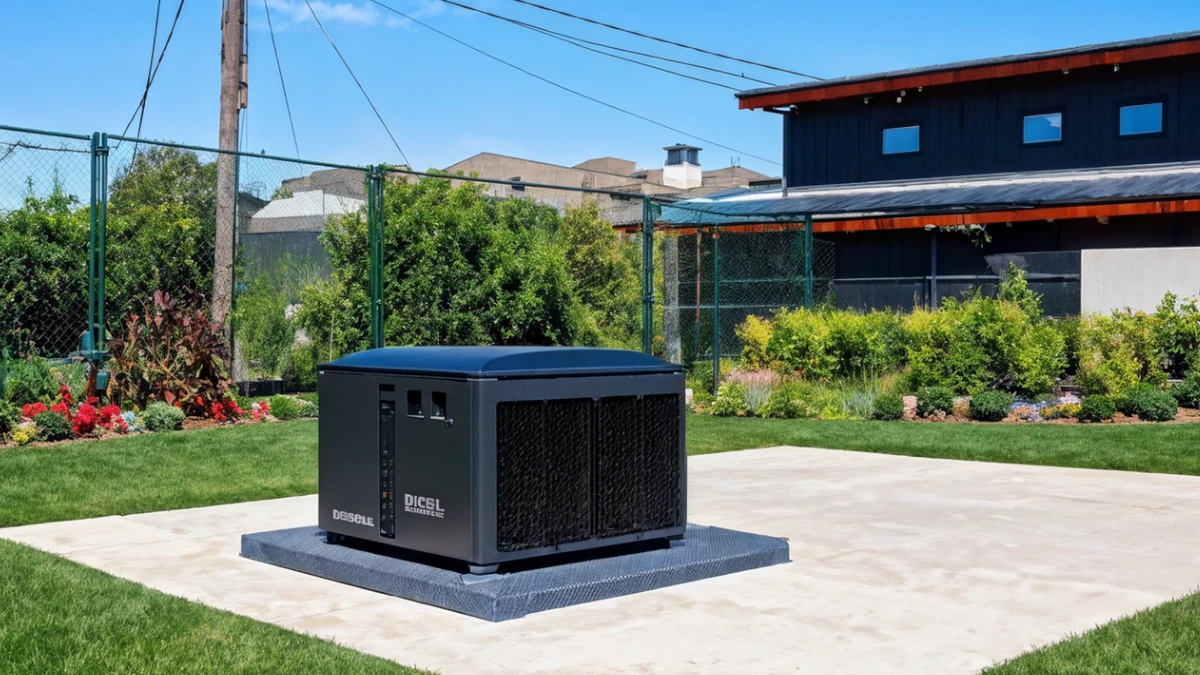In the fast-paced world of music production, uninterrupted power is crucial for maintaining productivity and protecting valuable assets. Power outages can disrupt recordings, damage sensitive equipment, and cause irreversible data loss. For a recording studio, where timing and precision are key, even a brief power interruption can lead to significant setbacks.
Investing in backup power solutions ensures that your studio remains operational during power outages, safeguarding your workflow and equipment. Continuous power allows you to maintain the efficiency and consistency needed for high-quality productions. This reliability is particularly important for sessions involving clients, as downtime can impact your professional reputation.
Moreover, power fluctuations and surges can harm delicate recording gear, leading to costly repairs or replacements. Backup power systems, such as uninterruptible power supplies (UPS), provide a stable power source, protecting your equipment from damage. These systems also offer peace of mind, knowing that your work is safe from unexpected interruptions.
In addition to technical protection, backup power solutions contribute to a stress-free environment for artists and producers. The assurance that power will not be an issue allows for a focus on creativity and performance. This is essential for capturing the best possible recordings and achieving the desired results.
To sum up, backup power is an indispensable component of any professional recording studio. It ensures continuous operation, protects valuable equipment, and enhances the overall production experience. For more insights on optimizing your studio setup, check out the importance of power in studios.
Uninterruptible Power Supply (UPS) Systems
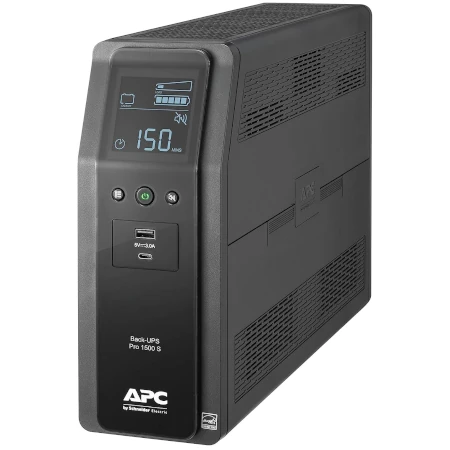
✅ Check Price on Amazon
As an Amazon Associate I earn from qualifying purchases.
Uninterruptible Power Supply (UPS) systems are essential for maintaining a seamless workflow in recording studios during power outages. These systems provide immediate backup power, ensuring that your equipment stays operational without any interruptions. This is particularly crucial during recording sessions, where even a brief power loss can disrupt the flow and result in lost data.
UPS systems work by instantly switching to battery power when they detect a power outage, providing a smooth transition that prevents interruptions. This not only keeps your recording sessions running but also protects your equipment from power surges and fluctuations that can cause significant damage.
When selecting a UPS system, it’s important to consider the size of your studio and your specific power needs. Smaller studios may require a less powerful UPS, while larger studios with more equipment will need a higher capacity system. Investing in a high-quality UPS can save you from the headaches and costs associated with power disruptions and equipment damage.
Additionally, UPS systems often come with software that allows you to monitor power status and manage power usage efficiently. This feature can be particularly useful for planning and optimizing power consumption in your studio.
Implementing a UPS system in your recording studio is a smart move that ensures continuous operation and protects your valuable equipment. To explore more about optimizing your studio’s power solutions, learn about audio recording on a Chromebook.
Backup Generators for Long-Term Solutions
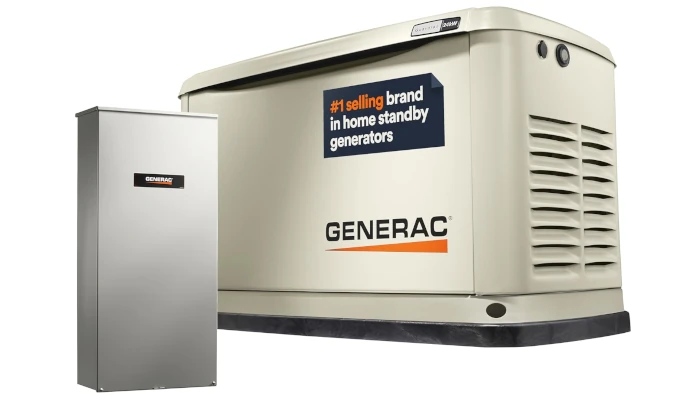
✅ Check Price on Amazon
As an Amazon Associate I earn from qualifying purchases.
For recording studios that require a reliable power source during extended outages, backup generators are an excellent solution. Unlike UPS systems, which provide short-term power, generators can keep your studio running for hours or even days, depending on the fuel supply.
Backup generators come in various types, including diesel, natural gas, and propane. Diesel generators are known for their durability and fuel efficiency, making them a popular choice for long-term use. Natural gas generators are convenient for locations with a natural gas supply, offering an endless fuel source without the need for storage. Propane generators provide a cleaner-burning option and can be stored indefinitely, ensuring readiness whenever needed.
Choosing the right generator for your studio involves evaluating your power requirements. Calculate the total wattage of your essential equipment to determine the generator capacity needed. It’s also wise to consider the noise level of the generator, as a quieter model will minimize disruptions during recording sessions.
Regular maintenance is crucial for ensuring your backup generator is always ready to perform. Schedule routine checks to inspect fuel levels, test functionality, and perform necessary repairs. This proactive approach will help prevent unexpected failures when you need the generator most.
Incorporating a backup generator into your studio’s power strategy provides peace of mind and ensures continuous operation during prolonged outages. For more guidance on setting up your recording studio, explore the first steps to build an audio home studio.
Portable Power Stations for Flexibility
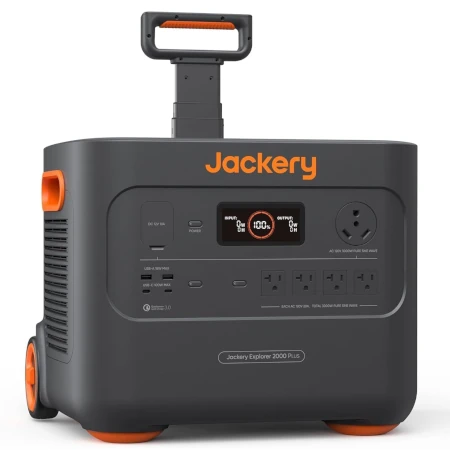
✅ Check Price on Amazon
As an Amazon Associate I earn from qualifying purchases.
Portable power stations are an excellent choice for recording studios seeking flexibility and convenience. These battery-powered units offer a reliable backup power source that is easy to transport and set up, making them ideal for smaller studios or mobile recording setups.
Portable power stations provide temporary power during outages, ensuring that essential equipment remains operational. Unlike traditional generators, they operate silently and without emissions, which is crucial for maintaining a quiet recording environment. Additionally, their compact size and portability allow you to use them in various locations, enhancing your studio’s versatility.
When selecting a portable power station, consider the power capacity and the type of devices you need to support. Calculate the total wattage of your critical equipment to choose a power station with sufficient capacity. Pay attention to the charging time and battery life to ensure that the unit can meet your studio’s demands during an extended outage.
Many portable power stations come equipped with multiple outlets, including AC, USB, and DC ports, allowing you to power a range of devices simultaneously. Some advanced models also feature solar charging capabilities, providing a sustainable and renewable energy source.
Regular maintenance is key to ensuring the reliability of your portable power station. Keep the battery charged and perform periodic tests to verify its functionality. Proper storage is also important, especially if the unit will not be used for an extended period.
Incorporating a portable power station into your studio’s power backup plan offers a flexible and convenient solution for handling power interruptions. For additional tips on enhancing your home studio, check out these tips to improve your home studio.
Solar Power Backup Systems
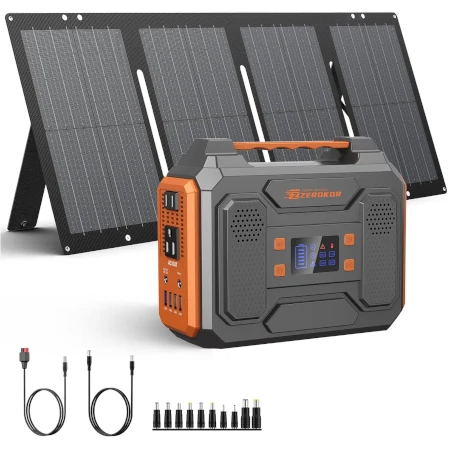
✅ Check Price on Amazon
As an Amazon Associate I earn from qualifying purchases.
Solar power backup systems are an increasingly popular choice for recording studios seeking a sustainable and efficient power solution. Combining solar panels with battery storage, these systems provide a renewable energy source that can significantly reduce dependency on traditional power grids.
The primary advantage of solar power systems is their ability to harness energy from the sun, making them an eco-friendly option. Once installed, solar panels convert sunlight into electricity, which is then stored in batteries for use during power outages. This setup ensures that your studio can remain operational even when the main power supply is disrupted.
Investing in a solar power backup system involves a higher initial cost compared to traditional generators or UPS systems. However, the long-term savings on electricity bills and the environmental benefits make it a worthwhile investment. Additionally, many regions offer incentives and rebates for solar installations, which can help offset the initial expenses.
When planning a solar power system for your studio, consider the size and energy needs of your equipment. Calculate the total wattage required and ensure that the solar panels and batteries can provide sufficient power. It’s also important to position the solar panels in an area with maximum sunlight exposure to optimize energy generation.
Maintenance of solar power systems is relatively low compared to other backup solutions. Regularly cleaning the panels and checking the battery health will keep the system running efficiently. It’s also advisable to have a professional inspect the system periodically to ensure all components are functioning correctly.
Incorporating solar power into your studio’s backup plan not only provides reliable power during outages but also contributes to a greener, more sustainable environment. For more insights on managing costs in your studio, explore the cost of musical arrangements.
Tips for Maintaining Backup Power Systems
Proper maintenance of backup power systems is crucial to ensure their reliability and longevity. Here are some essential tips to keep your power backup solutions in optimal condition:
1. Regular Testing and Inspection
Schedule regular tests and inspections for all backup power systems, including UPS units, generators, and portable power stations. This helps identify potential issues before they become major problems. For UPS systems, perform battery checks and ensure the software is up-to-date. For generators, run them periodically to keep the engine in good working order and check fuel levels.
2. Keep Batteries Charged
For battery-powered systems like UPS units and portable power stations, keeping the batteries fully charged is essential. Regularly charge and discharge the batteries to maintain their health. Replace old or weak batteries to ensure they can provide the necessary power during an outage.
3. Fuel Management for Generators
For generators, managing fuel is critical. Store fuel safely and in sufficient quantities to handle prolonged outages. Regularly check fuel quality and avoid using old or contaminated fuel. Diesel and propane fuels have different storage requirements, so follow the manufacturer’s guidelines for optimal storage and usage.
4. Clean and Maintain Equipment
Dust and debris can negatively impact the performance of your backup power systems. Keep all equipment clean and free from obstructions. For solar power systems, clean the panels regularly to ensure maximum energy absorption. For generators, clean the filters and change the oil as recommended by the manufacturer.
5. Professional Servicing
Regular professional servicing can prevent potential issues and extend the life of your backup power systems. Hire qualified technicians to perform detailed inspections and maintenance on your generators, UPS units, and solar power systems. This will ensure all components are functioning correctly and efficiently.
6. Staff Training
Train your studio staff on the proper use and maintenance of backup power systems. They should know how to operate the equipment during an outage, perform basic maintenance tasks, and identify warning signs of potential issues. Well-trained staff can respond quickly and effectively during power disruptions.
By following these tips, you can ensure that your backup power systems are always ready to provide reliable power during outages. This proactive approach will protect your studio’s equipment and maintain uninterrupted operation. For further advice on improving your recording setup, explore these 5 tips to record vocals in your home studio.

